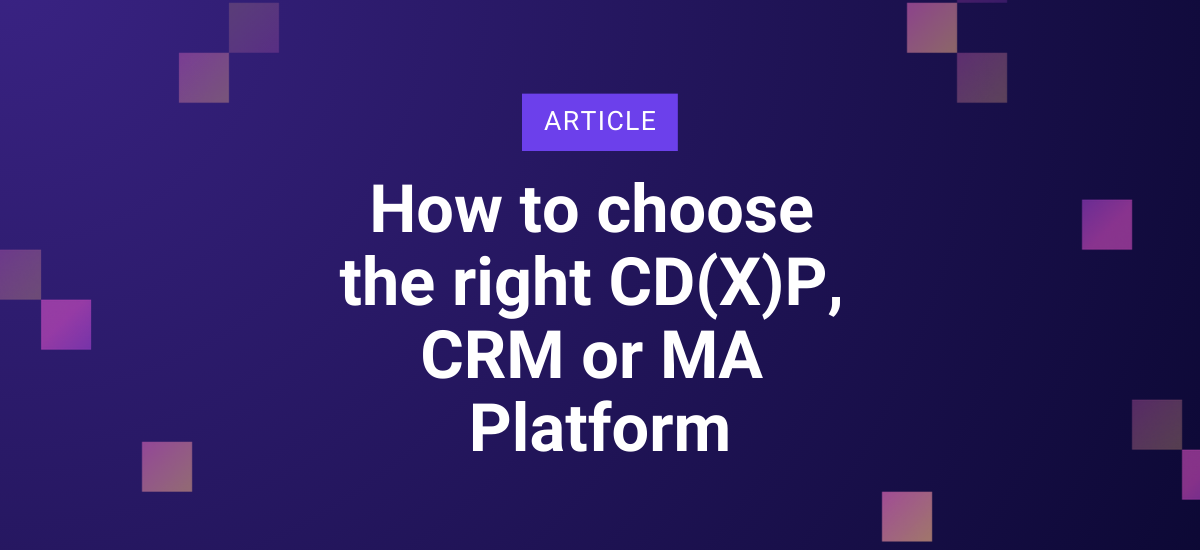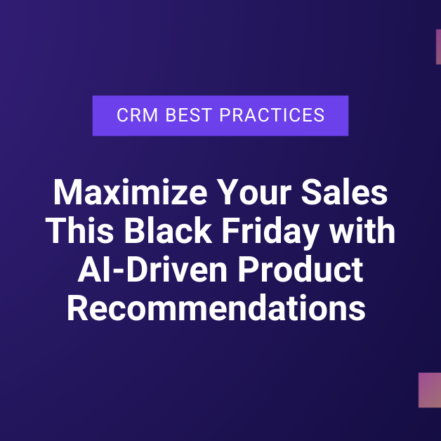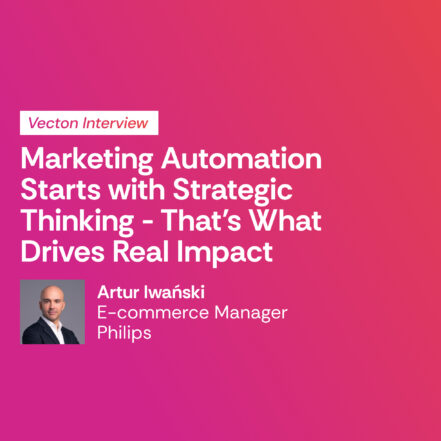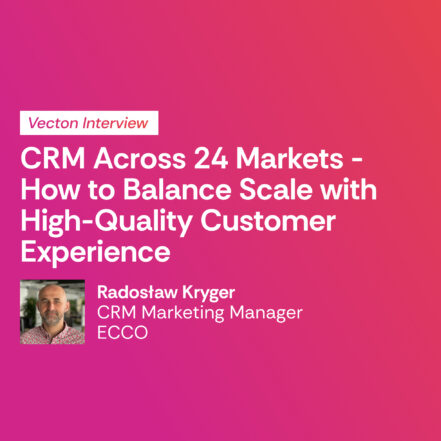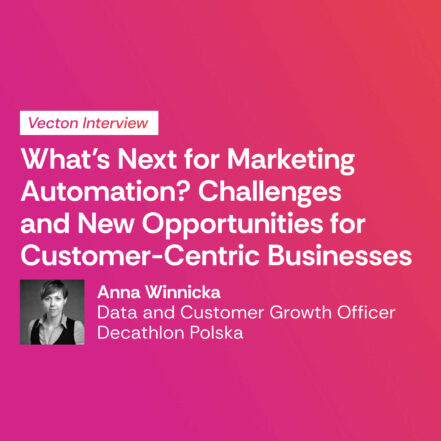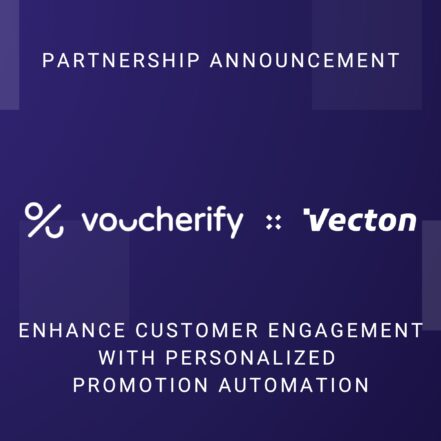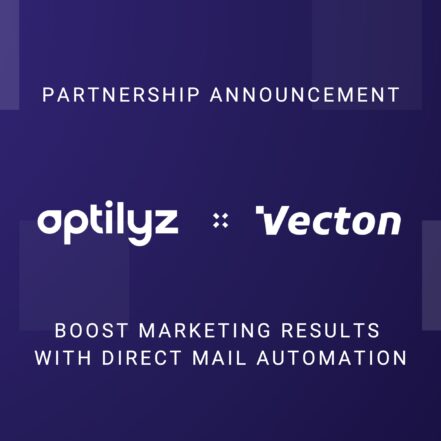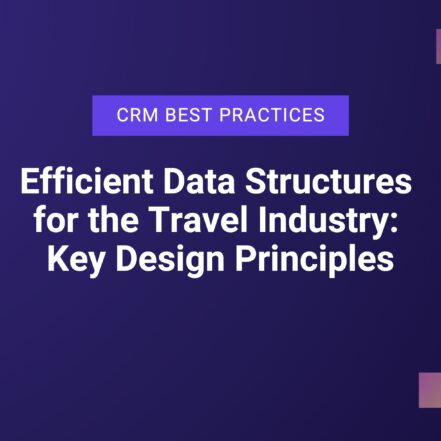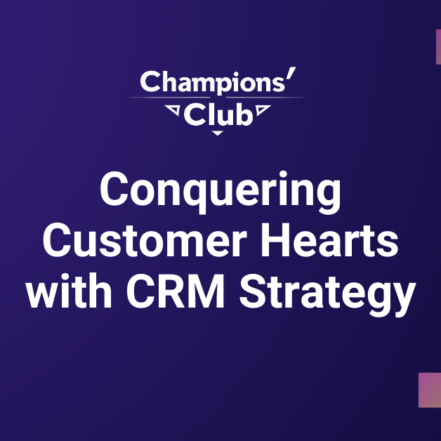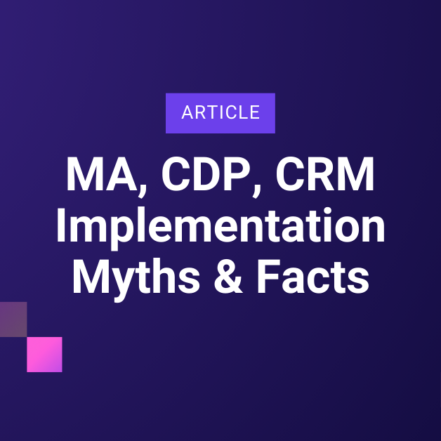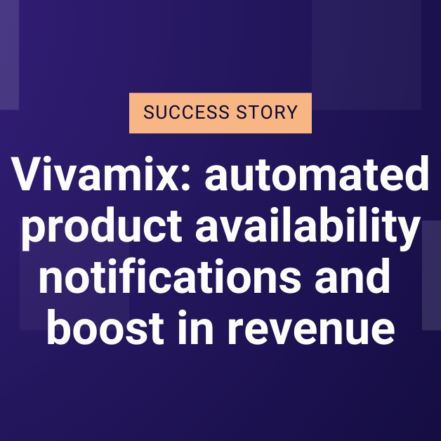In today’s fast-paced digital landscape, businesses heavily rely on Customer Data Platforms (CDPs), Customer Relationship Management (CRM) systems, and Marketing Automation technologies to streamline their marketing efforts and enhance customer experiences. These technologies play pivotal roles in collecting, managing, and utilizing customer data to build meaningful relationships and drive targeted marketing campaigns. However, with a multitude of options available in the market, selecting the right CDP, CRM and Marketing Automation technology can be a daunting task. In this article, we will explore the key factors to consider when making this critical decision.
1. Define Your Objectives and Needs
Before embarking on the journey of selecting the perfect technology, clearly outline your business’s specific objectives and needs. Identify the pain points in your existing marketing strategies and the areas that require improvement. Determine your short-term and long-term goals, and ensure that the technology you choose aligns with these objectives.
2. Check your Integration Capabilities
An essential aspect of CDP, CRM and Marketing Automation technology is its integration capabilities. Ensure that the platform can seamlessly integrate with your existing tech stack, such as your website, e-commerce platform, email marketing tools, and social media channels. A well-integrated system will lead to improved data accessibility, data consistency, and efficient workflows.
3. Take Care of Data Management and Security
Data lies at the heart of these technologies, so data management and security are of paramount importance. Verify that the platform adheres to industry-standard data protection regulations, such as GDPR or CCPA. Additionally, consider the data storage options – whether it’s cloud-based or on-premises – and evaluate the platform’s data cleansing and deduplication capabilities to maintain accurate and up-to-date customer information.
4. Mind Platform’s Scalability and Flexibility
As your business grows, your customer base and data requirements will inevitably increase. Hence, it is crucial to choose a technology that is scalable and can accommodate your future needs. Assess the platform’s ability to handle a growing volume of data and whether it can adapt to changing marketing trends and customer behaviors.
5. Ask for a User-Friendly Interface and Training*
*especially if you don’t have a dedicated Marketing Automation team
A user-friendly interface is vital, as it allows your marketing and sales teams to efficiently navigate the platform and leverage its features effectively. A steep learning curve could hinder productivity and lead to frustration among team members. Additionally, inquire about the availability of training resources and customer support provided by the technology provider to ensure your team receives the necessary assistance.
6. Evaluate Analytics and Reporting Capabilities
The ability to track and analyze marketing performance is essential for making data-driven decisions. Evaluate the platform’s analytics and reporting capabilities to gauge its effectiveness in providing valuable insights into customer behavior, campaign success, and overall ROI.
7. Consider Your Need for Customization and Personalization
Personalization is a key element of successful marketing campaigns. Look for a technology that offers robust customization options, allowing you to tailor your marketing efforts based on individual customer preferences and behavior.
8. Analyze Pricing and Total Cost of Ownership
Budget constraints are always a consideration when adopting new technologies. Evaluate the pricing models of different vendors and assess the TOTAL cost of ownership over time, including any additional costs for support, upgrades, and data storage.
Summary
Choosing the right CDP, CRM or Marketing Automation technology is a critical decision that can significantly impact your marketing efforts and customer relationships. By carefully assessing your business needs, integration capabilities, data management, scalability, user-friendliness, analytics, and customization options, you can make an informed choice that aligns with your marketing objectives and delivers a competitive edge in the market. Remember to thoroughly research different vendors, seek demos, and consider customer reviews to ensure you select a technology partner that will drive your marketing success for years to come. Also beware of myths about choosing the right technology.
If you need a partner to analyze your needs and help you in choosing the right technology, reach out to our Vecton experts.
